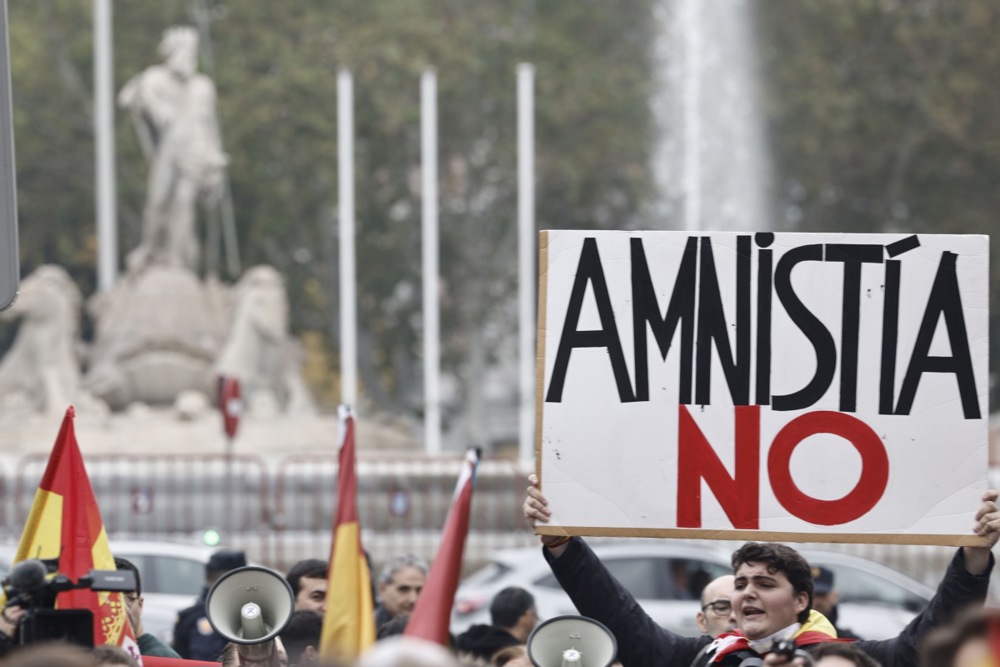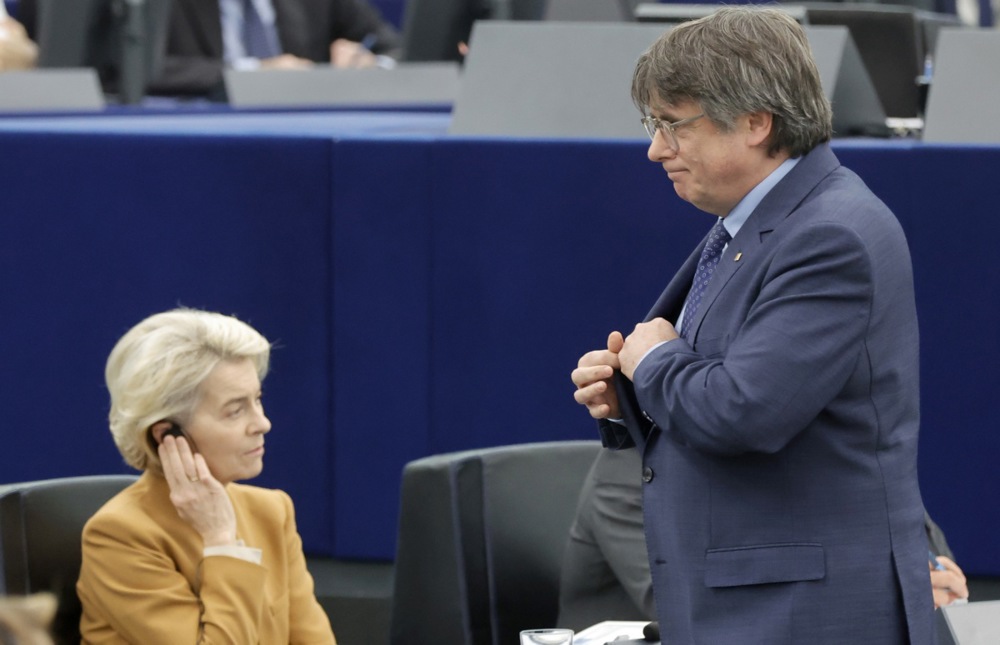As anti-EU sentiments continue to rumble across the continent, Spain has remained a somewhat unlikely champion of the European project.
Joining the European Union in 1986 around a decade after the death of Fascist dictator Francisco Franco, Spaniards are one of the most supportive populations of the bloc.
Despite occasional clashes between Madrid and Brussels, polling indicates that some 77 per cent of Spaniards favour greater European-nation integration, while a Eurobarometer survey found that 84 per cent of the country “feel” like EU citizens.
This compares to just 77 per cent of Germans, and 55 per cent of French citizens.
“Spain is a very pro-European country,” said José Carlos Cano, PhD, professor of Constitutional Law and president of the Spanish think-tank Europa Ciudadana.
Such sentiments appear understandable when looking at how the country has benefited from EU membership.
“Spain is one of the Member States that has benefited most from the Green Deal and the Next Generation EU funds,” Cano said.
He added that, despite being a member of the bloc for several decades, the country remains a net recipient of EU funds, something Cano says Madrid does not want to see changed for the foreseeable future.
The Spanish Parliament has approved a controversial amnesty bill for Catalan separatists, sparking uproar among opposition parties. https://t.co/KcT5YH4Gdb
— Brussels Signal (@brusselssignal) March 18, 2024
Whatever the reason for the pro-EU sentiments of the Spanish, these feelings are reflected in the country’s politics.
Nearly all political parties active within the country take a supportive stance of the EU, with even VOX — Spain’s most successful populist party — having so far avoided being too harsh in its criticisms of Brussels.
Spaniards also care more about European elections than the EU average. During the last bloc-wide vote in 2019, 60.74 per cent of Spanish voters turned up to the polls.
Not only was this a 15 per cent higher turnout than the previous race in 2014, but also over 10 per cent higher than the mean voter turnout for the entire EU.
Cano expects voter turnout will be even higher this year, with the expert saying that the Spanish see the EP elections as an area where they can “project their domestic issues”.
“The European elections are a thermometer about Spain’s domestic politics,” he said.
Relations between Spain and the EU are however not all positive.
Brussels routinely intervenes in Spanish domestic politics. The bloc is currently evaluating the controversial amnesty bill that would pardon Catalonian secessionists, with Brussels also pushing for Spain’s two largest parties to “unblock” the country’s chief legal governance body, the General Council of the Judiciary.
Spain’s presidency of the Council of the European Union in 2023 also did not go very well. Cano blamed the poor performance on “internal circumstances” plaguing the country at the time.
With these including a contentious snap election and controversial government negotiations with Spanish separatist politicians, Cano said that these issues “did not do any favours” for the country.
Like many Spaniards, Cano said that he was in general positive about the role of the bloc in Spain. Despite deficiencies in some areas, the EU has helped Spain chart a grounded political course in recent years.
“The European Union provides Spain with great stability,” he said.
The song Zorra, the Spanish entry for the Eurovision Song Contest by the duo Nebulossa, is splitting opinion in Spain with feminists calling it "degrading" — but socialists in the government think it "breaks stereotypes". https://t.co/F6YsFbfdb1
— Brussels Signal (@brusselssignal) February 9, 2024





